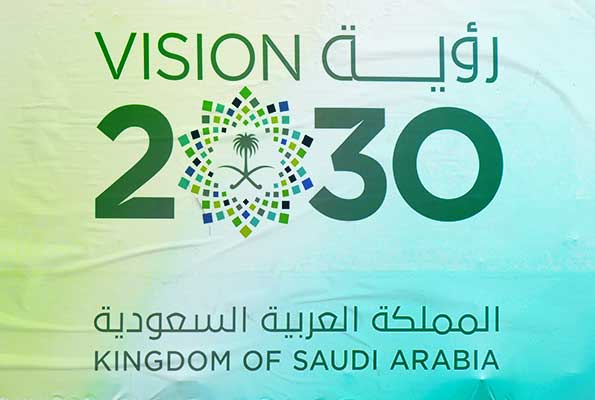Historically, it has been difficult for pharmaceutical companies to reach patients in the Middle East and North Africa (MENA) due to fragmented and ineffective systems. However, Saudi Arabia now seeks to enhance its standing as a trustworthy partner in the life sciences sector. The Kingdom’s leadership is now using a variety of strategies to draw foreign investments in biopharma.
Current Scene Of The Saudi Pharmaceutical Industry
The industry’s share of the larger MENA market is 37%, and its projected 2032 annual sales are between USD 8.5 and 10.7 billion. According to Invest Saudi, by 2030, it should have grown by a compound annual growth rate (CAGR) of 5.7%; some projections place growth as high as a CAGR of 9.6% by 2033.
Saudi also experiences lifestyle-related ailments such as cancer, respiratory conditions, obesity, diabetes, and cardiovascular disease, similar to many other MENA nations. The Saudi government’s investment in improving the diagnosis and treatment of chronic disorders may set it apart from its neighbours.
The Saudi Ministry of Health (MoH) has developed awareness-raising campaigns to prevent diseases. Mobile mammography and cancer screening devices are now available in public spaces around the country. Additionally, the government has pledged to increase screening visits to primary care facilities for chronic diseases by half during the following few years.
The Kingdom has earmarked USD 1.5 billion for the sector’s digital transformation. It has developed an e-Health plan to use telemedicine as part of its investment in the broader adoption of digital health.
Rasha Ma’ayah, business development director at Saudi-based Tabuk Pharmaceutical Manufacturing Co., told In Vivo, “The Government is investing more in the healthcare industry to ensure that more of the populace is able to receive pharmaceuticals and benefit from the healthcare system.”
In its “Vision 2030” effort, which aims to guide the nation off its reliance on oil exports as its primary source of income, the Kingdom has laid out a strategy for expanding the life sciences sector.
The plan includes, among other promises, USD 65 billion in investments to build the nation’s healthcare infrastructure and enhance the prevention and treatment of cardiovascular, diabetes, and obesity disorders, which in 2020 accounted for 25–35% of healthcare spending.
Promoting Local Production & Innovation
The Kingdom’s aim is to increase domestic pharmaceutical manufacturing from 20% to 40%, as per the home market requirements. By providing guaranteed offtake agreements through the Saudi National Unified Procurement Company (NUPCO), the government hopes to shift pharmaceutical importing to domestic manufacturing through wholly owned sites or contract manufacturing organizations (CMOs).
A deal with NUPCO is vital since the organization buys drugs and medical equipment on behalf of the roughly 31 million Saudi citizens and public sector employees. In addition to receiving a nationally guaranteed contract, international businesses that boost domestic production can bargain with NUPCO for higher drug prices and distribute and sell medicines domestically, as opposed to imported medicines, which can only be distributed by a Saudi company.
By 2024, NUPCO tender proposals will only be accepted by businesses with regional headquarters in Saudi Arabia.
“We have a hunger as a company for partners who will share their technology and know-how,” Mustafa Aljasser, chief business development officer of the Riyadh-based Sudair Pharmaceutical Company, told In Vivo.
In addition to producing and selling oral and intravenous cancer-related products like tablets, capsules, injectables, and lyophilized goods, Sudair also sells these goods to other GCC members and has put in bids to ship these goods to the broader MENA region.
However, it relies on knowledge transfer from international corporations to enhance its production skills. To date, Sudair has collaborated with Novartis and Dr. Reddy’s. The Saudi government’s purpose is to obtain technological know-how through these relationships, while the international partners gain from the incentives provided by ‘Vision 2030’.
In response to the ‘Vision 2030’ incentives, international biopharmaceutical giants have also started setting up their regional manufacturing facilities. To make 16 pharmaceutical items, Pfizer erected a USD 50 million, 11,000 square-meter facility when the program was announced in 2016 (although it wasn’t officially launched until 2021). The investment included the corporation receiving complete ownership of its regional affiliate, among other conditions.
To “Saudize” or localize 75% of their local output, GSK has also made further investments in regional manufacturing facilities. Additionally, in 2022, Novartis agreed to transfer these technologies locally and localize some aspects of clinical research and development for cell and gene therapy with the Saudi Arabian Ministry of Investment.
The Road Ahead
Saudi’s efforts to enhance its standing in the life sciences sector are paying off, as the country has emerged as a trustworthy partner in the biopharma industry. With financial incentives, regulatory improvements, and infrastructure improvements, the Kingdom is drawing more foreign investment in the sector.
With initiatives under ‘Vision 2030’, the nation is now aiming to increase domestic pharmaceutical manufacturing and shift pharmaceutical importing to domestic manufacturing. Major international biopharmaceutical companies are also setting up regional facilities, bringing knowledge and technology to the regional market. With these efforts, Saudi now looks well-positioned to become a leader in the life sciences sector in the MENA region.



